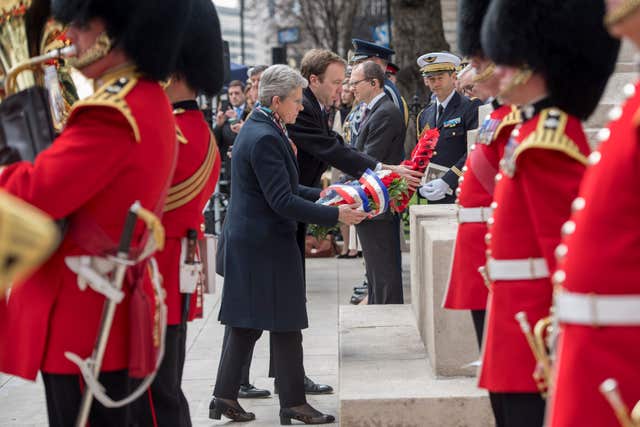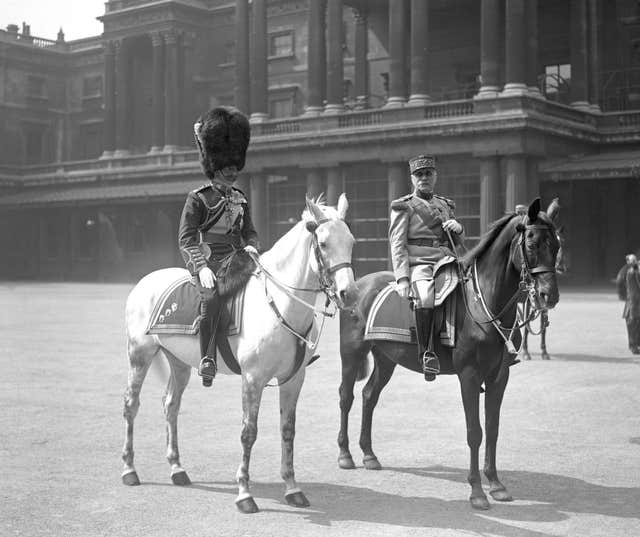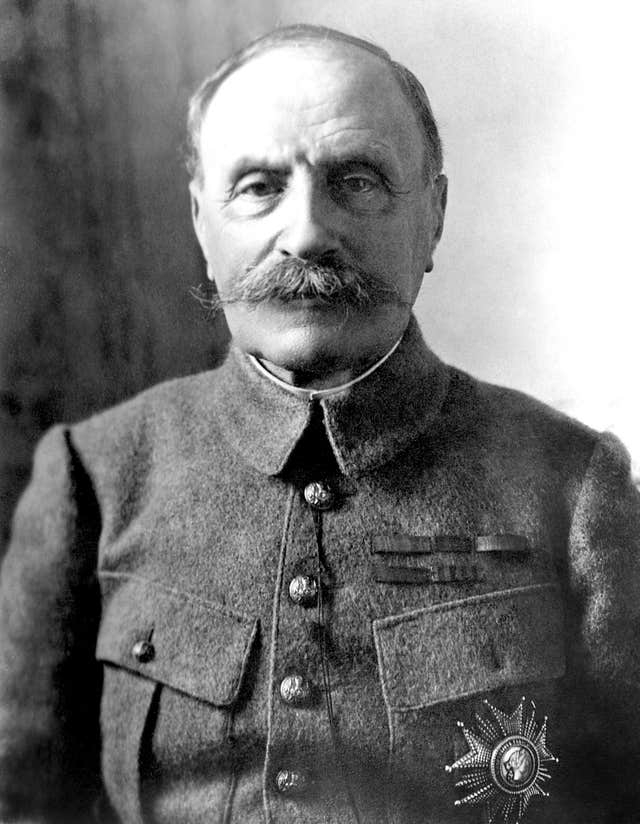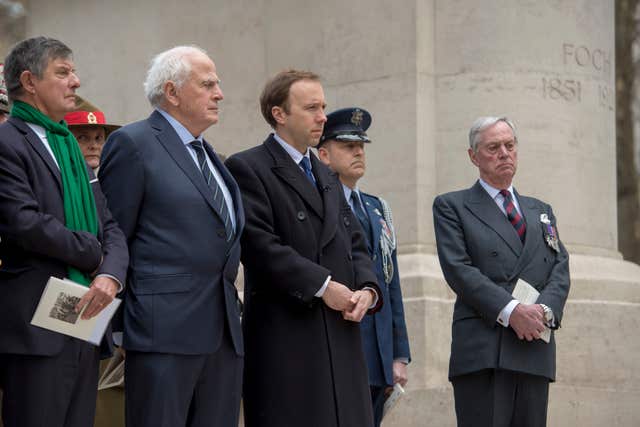
A ceremony marking the centenary of the “crucial” appointment of Marshal Foch as supreme allied commander in the First World War has been held in London.
Descendants of Marshal Ferdinand Foch and commander of the British Forces Field Marshal Douglas Haig joined dignitaries from the UK and France to mark 100 years since the appointment.
Foch’s appointment on March 26, 1918, was the first time the Allies fought under a single strategic commander, and came in response to the start of the German spring offensive which pushed Allied forces back to their 1914 lines.
Foch managed to maintain a united front against the Germans stretching from the Adriatic to the North Sea, and his appointment was key to Allied successes in the summer and autumn of 1918 leading up to the Armistice.

Wreaths to honour Marshal Foch, who died in 1929, were laid at his statue in Grosvenor Gardens, Victoria, London.
Culture Secretary Matt Hancock , who attended the ceremony, said: “The decision to coordinate military operations under Foch’s leadership was crucial.
“It united the Allied forces who then fought as one to victory and peace in November 1918.
“Foch said he had served England as if she were his own country.
“In our final year of of First World War centenary commemorations, it is right we mark the appointment of Marshal Foch so future generations remember the pivotal role he played in the outcome of the war.”
Foch’s great grandson Eric Becourt-Foch, said Winston Churchill had said that, taking into account the forces Foch had under his orders in 1918, he was “the greatest military commander of all time”.

Lt-Col Becourt-Foch said appointing a unified commander in March 1918 prevented the Germans creating a gap in Allied forces on the Western Front.
It was important not to forget what happened in the First World War, he said, but added: “Now we don’t have to be enemies any more between France, Britain and Germany, the time of reconciliation has come, especially in the second half of the last century.”
He said: “I’m very thankful to the British government that invited us to such a commemoration, and that the British government found it necessary to honour a French marshal.”
Lord Astor of Hever, a former defence minister, said his grandfather Field Marshal Haig had supported and welcomed the appointment of Marshal Foch, and the two men had worked closely together.

When Haig died in 1928, Foch came to Britain for the funeral and was one of the pall bearers, he said.
And he said it was important to remember the events 100 years ago for the large numbers of British and Commonwealth, and French, American, German servicemen who died.
“We owe it to them to remember.
“It was a very important war, but I think my main reason for remembering is for all the dead, there were very few families that didn’t lose a member of their family.”
The British and French continued to work closely together on issues such as defence and would continue to do so after Brexit, he added.



Comments: Our rules
We want our comments to be a lively and valuable part of our community - a place where readers can debate and engage with the most important local issues. The ability to comment on our stories is a privilege, not a right, however, and that privilege may be withdrawn if it is abused or misused.
Please report any comments that break our rules.
Read the rules here